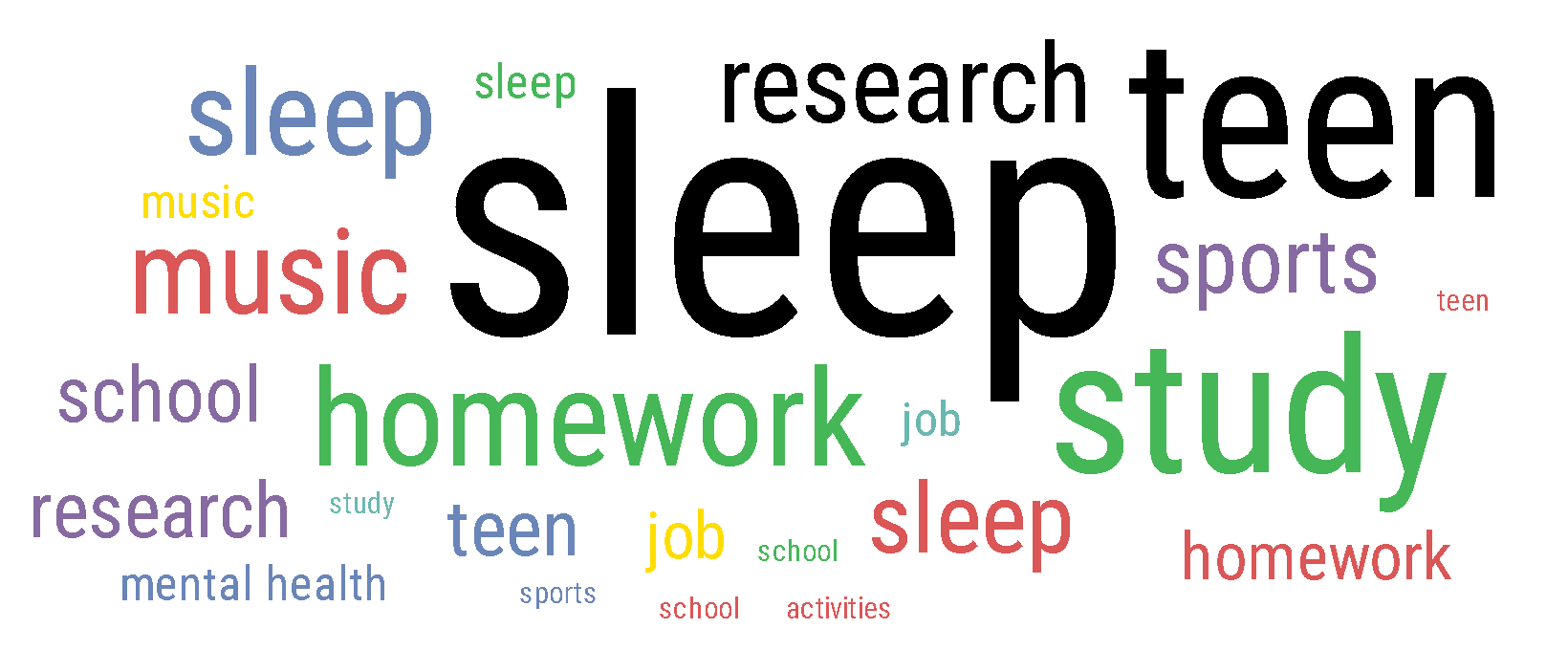
The Importance of Enough Sleep
Teens need much more sleep than they typically get. They need about 9 hours per night to be at their best. Teens may have an increased risk of other mental health issues when they do not get enough sleep.
Risks of Sleeplessness
“Sleepless in Fairfax” in the Journal of Youth and Adolescence, notes the insufficient sleep puts youth at risk for depression, suicidality, and substance use. This study used a large sample of youth from Fairfax County, Virginia to self report on their sleep habits. On average, students reported getting only 6.5 hours of sleep per school night. 20% received less than 5 hours and only 3% got the recommended 9 hours per night. The study results indicate that a loss of just one hour of sleep per night was associated with mental health risks. These included significantly greater odds of feeling hopeless, seriously considering suicide, suicide attempts, and substance use.
Ideally, high school students who wake up at 6 for school should be asleep by 9 each night. Are you laughing yet? Activities, homework, and jobs take up a significant portion of a teen’s hours outside of school. Most teens are not getting enough sleep.
Chronic sleep loss in children and adolescents is one of the most common – and easily fixable – public health issues in the U.S. today
-Judith Owens
School Start Times Related to Less Sleep
In related news, the American Academy of Pediatrics is weighing in on school start times. They recommends that middle and high schools start no earlier than 8:30 in the morning to allow teens sufficient sleep. Teen’s body chemistry can make it harder for them to fall asleep before 11 PM. Delaying school by an hour each morning would allow them to receive more needed sleep. “Chronic sleep loss in children and adolescents is one of the most common – and easily fixable – public health issues in the U.S. today,” said pediatrician Judith Owens, MD, FAAP, lead author of the policy statement, “School Start Times for Adolescents.”